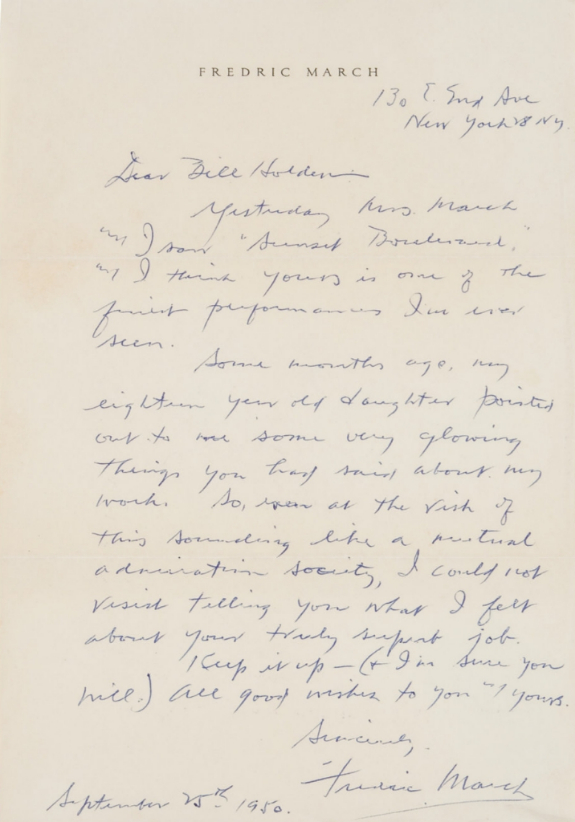Despite being one of the great American directors, Elia Kazan will always be remembered for his damaging testimony before the House on Un-American Activities Committee (HUAC) on 10 April 1952, a testimony which would taint his reputation for the rest of his life. During his first testimony earlier that year in January, Kazan had refused to name the names of people who had been members of the Communist Party with him during the 1930s. In order to avoid being blacklisted, however, Kazan testified again a few months later, this time volunteering the names of eight of his old friends (including Clifford Odets and Paula Strasberg), thereby destroying careers.
Kazan decided to cooperate with HUAC so he could continue making films. While he was an established stage director and could have kept working if he had been blacklisted —the blacklist didn't have much effect on Broadway — he didn't want to focus on the stage any longer, wishing to make motion pictures instead. To his close friend, playwright Arthur Miller, Kazan said prior to his testimony: "I hate the Communists and have for many years and don't feel right about giving up my career to defend them. I will give up my film career if it is in the interests of defending something I believe in, but not this".
And so, Kazan escaped the Hollywood blacklist and continued doing what he wanted to do most — make films. He would deliver some of his best work in his post-HUAC period, e.g. East of Eden (1955) and On The Waterfront (1954), the latter film regarded as Kazan's justification for informing. (Before 1952 Kazan had already made films such as A Tree Grows in Brooklyn (1945), Gentleman's Agreement (1947), Panic in the Streets (1950) and A Streetcar Named Desire (1951).)
And so, Kazan escaped the Hollywood blacklist and continued doing what he wanted to do most — make films. He would deliver some of his best work in his post-HUAC period, e.g. East of Eden (1955) and On The Waterfront (1954), the latter film regarded as Kazan's justification for informing. (Before 1952 Kazan had already made films such as A Tree Grows in Brooklyn (1945), Gentleman's Agreement (1947), Panic in the Streets (1950) and A Streetcar Named Desire (1951).)
Kazan never apologised or showed remorse for what he had done. While he admitted to regretting "the human cost" of it, in the end Kazan stood by his actions: "Maybe nobody agreed with me, but I thought that was the right thing to do. Maybe I did wrong, probably did. But I really didn't do it for any reason other than that I thought it was right."
And now, the letter!
Eleven days after he had given his HUAC testimony, Elia Kazan wrote to screenwriter Robert E. Sherwood, saying that although his informing was "difficult and painful", it was also "necessary and right".
And now, the letter!
Eleven days after he had given his HUAC testimony, Elia Kazan wrote to screenwriter Robert E. Sherwood, saying that although his informing was "difficult and painful", it was also "necessary and right".
Sandy Hook, Conn.
April 21, 1952
Dear Bob:
Your letter meant so much to me that I found it a little hard to answer. What can I say? You have it exactly. It was difficult and painful. No one likes to "tell". And to say that something is difficult and mean it is to face the fact that it can never come out 100% comfortable. It didn't.
I believe what I did was necessary and right. The silence of so many of the House Committee's witnesses had disgusted me. I thought what the nation needed was a sense of proportion about the problem and, for this, cold facts. Yet the first time I was called down, though I answered every question about myself and my own activities, I refused to name other individuals. It was as if 12th. st.* had kept hold of a little piece of my conscience all these years. The Communists had done violence to everything I believed in, and still somehow I stayed silent and shrugged it off and minimized and looked the other way.
Enough of that! I've been trying during these last weeks to let the air in and the light and to take a good fresh look at what's in my damned head. Painful as its been, I'm really glad it all happened.
Most gratefully yours,
Gadg.
Source: The Selected Letters of Elia Kazan, edited by Albert J. Devlin with Marlene J. Devlin; published in 2014 by Alfred A. Knopf.
Notes
On 12 April 1952 following his HUAC testimony, Kazan took out an ad in the New York Times, defending his actions. Kazan's full statement can be read here.
*12th st. = 35 East 12th Street, New York City, location of the Communist Party headquarters.









































